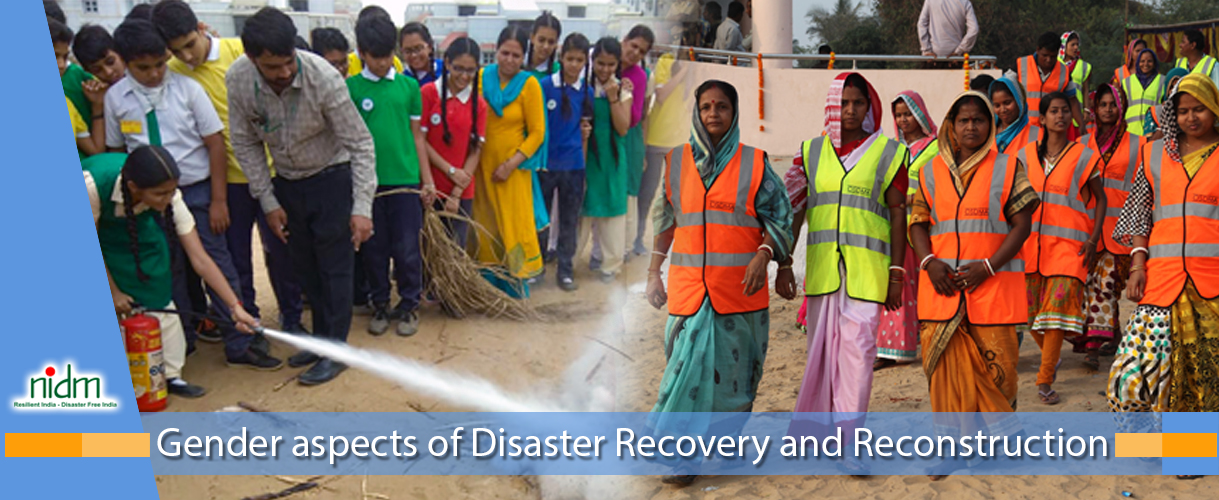Gender Aspects Of Disaster Recovery And Reconstruction

Overview
During the last decade, more than one billion people have been affected by natural disasters. While natural hazards do not discriminate on the basis of gender, or any other social characteristics, resilience to disasters is affected in important ways and on a large scale by gender. Gender shapes disaster experience and the ability to recover. It explains why certain groups of people are at greater risk and why some others can recover at a slower pace. Since gender plays an important role in assigning roles and responsibilities within groups and in determining the access to and control of resources among groups, gender sensitivity and gender concerns become a valid and important policy domain during disasters and throughout the rehabilitation, recovery and reconstruction process.
Gender mainstreaming is a key strategy to reduce inequalities among
gender groups. Mainstreaming gender into disaster management strengthens
the resilience of entire communities, cuts recovery time, and leads to
more efficient recovery and reconstruction.
It can be achieved by taking into account the needs, concerns and
capacities of gender groups in planning and implementing disaster
reduction and risk management activities.
This course is designed to facilitate the mainstreaming process by improving the understanding of gender concerns in disaster management. It also aims to contribute to improving knowledge of relevant policies, regulations and tools for implementing gender sensitive disaster management practices with a specific focus on disaster recovery and reconstruction.
The course targets policy makers, community leaders and disaster management professionals for sensitization in the gender aspects of disasters and post disaster processes. It also targets government officials and staff in development agencies, aid and relief organizations.